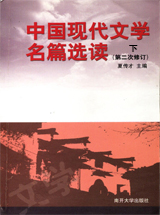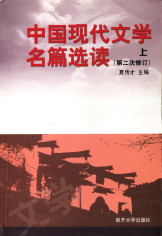
主要责任者: 夏传才
责任方式: 主编
出版者: 南开大学出版社
出版地: 天津
字数: 922 千字
页码: 1-604
开本: 32
中图分类号: I216.1
装帧: 简
分辑名:下册
语种:中
定价:50.0(共2册)
出版时间:2002-09
丛书多卷书否:是
书目简介:本册工具书共收录51条词条。

主要责任者: 夏传才
责任方式: 主编
出版者: 南开大学出版社
出版地: 天津
字数: 922 千字
页码: 1-562
开本: 32
中图分类号: I216.1
装帧: 简
分辑名:上册
语种:中
定价:50.0(共2册)
出版时间:2002-09
丛书多卷书否:是
书目简介:本册工具书共收录75条词条。